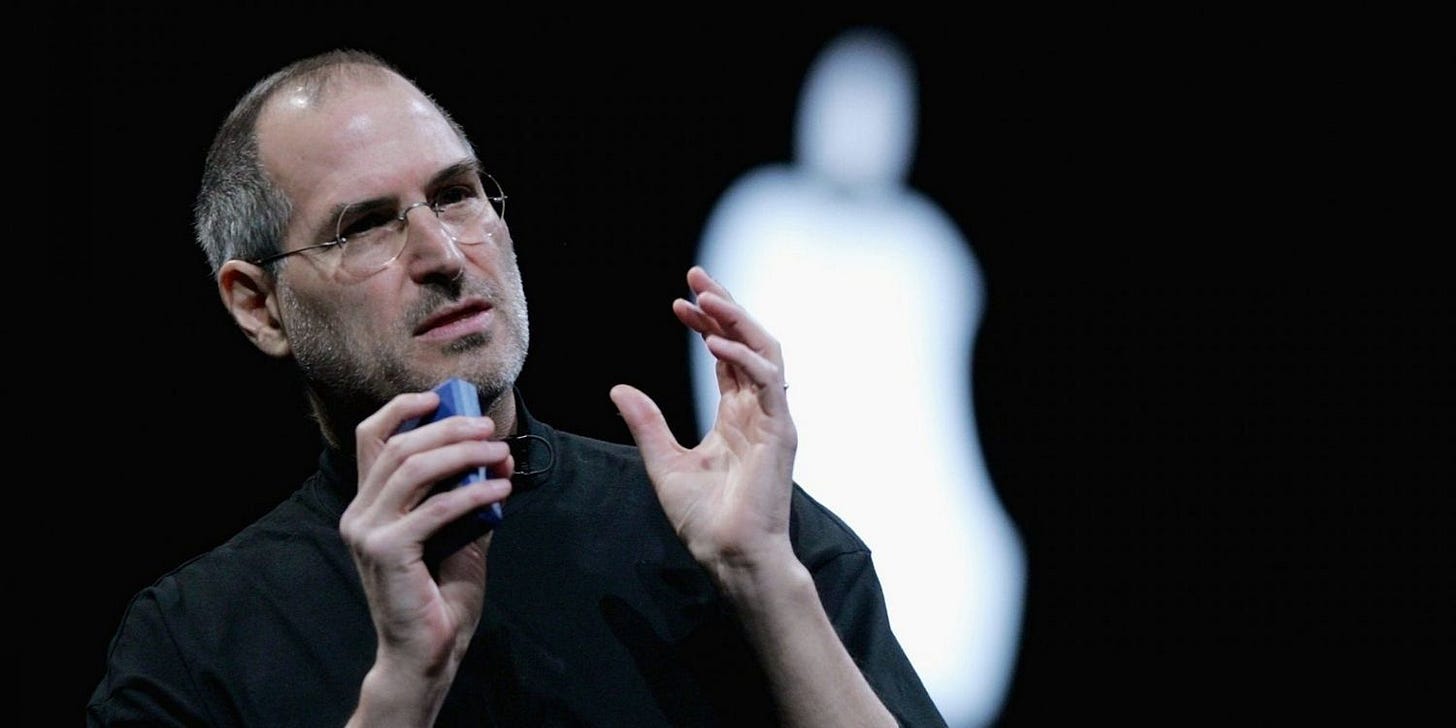The Power of Storytelling
Seriously, this is the skill you want to learn
I’m at a small speakeasy bar in Shoreditch, where I will spend the next few hours getting to know my date.
Like all first dates I go on, I hope I will enjoy her company enough to want to spend more time with her.
Throughout the night, we will reveal parts of our origin stories. It’ll start surface-level. What do you do? What brings you to London? What did you study? Where did you go to university? And so on.
As the night progresses, we will reveal more about ourselves. What do you think is your best character trait? What is your worst? What’s something you’re proud of that you have done? This is my favourite part. I’m not looking so much for the perfect answer but how she answers it because it reveals something about herself.
There is no simple way for my date and I to understand each other’s world without stories. We both inhabit foreign worlds, have different upbringings, perspectives and feel different passions and hatreds. But we’re in search within each other the stories of similar backgrounds and lived experiences.
The date goes well. She asks to see me again, and I extend my London trip.
What follows is five dates in the space of two weeks.
On the fifth date, I asked her, “What were your first impressions of me?”
“You’re playful, and you tell good stories.”
Numbers don’t move people. Words do.
Steve Jobs once said, “The most powerful person in the world is the storyteller.”
I agree. As someone who’s spent the last few years in the relentless pursuit of acquiring new skills, storytelling is the best one to possess.
Some may argue that it’s “just complicated airflow” and that in this modern age, computer science or STEM is the most powerful skill. Personally, I think they’re wrong. Let me explain.
Whether you realise it or not, you’re always telling stories. On a first date, job interview, sales pitch, shareholders presentation or conversing with friends, you are always telling a story.
The best storytellers know this and use stories to bend the arc of evolution and forge new paradigm shifts in culture and society.
Storytellers like Martin Luther King, Voltaire, Leo Tolstoy, Ernest Hemingway, Marie Curie, Cleopatra, Rosa Parks, Benjamin Franklin, Henry Ford, Steve Jobs and so on all tell stories powerful enough to rally humans together and take action.
Let’s take Steve Jobs. He built one of the most valuable companies in the world, not because he knew everything about phones, but because he’s a master storyteller who inspired a team of world-class engineers and designers to dream bigger and build a smartphone.
Telling stories is a skill as old as time. We’ve been telling stories to one another for thousands of years. We’ve told stories huddled around the campfire, we’ve painted them on cave walls, written them down on stone tablets, scrolls and in books. Stories are how we convey knowledge from generation to generation, well before writing existed.
Let’s imagine for one second you and I went back in time to the cavemen era, and I said to you, “Stay away from the big woolly mammoth. It’s dangerous.” Chances are, you will forget or ignore my warning.
But if I said to you, “My friend James once tried to go out and hunt a woolly mammoth, but because he did a poor job of trying to kill it, the mammoth stepped on him.” You’re going to want to stay away.
Whatever the shape, form or time, storytelling plays a major role in human interaction and is the most effective way to convey knowledge. The power of stories is also why anecdotes trump data.
If you tell me millions of children get trafficked from Vietnam into China, I’ll say, “Damn, but there’s not much I can do about it anyway.”
But tell me a story of how Lai, a 17-year-old Vietnamese girl, was kidnapped and forced to become a bride against her will, who is seven months pregnant, who against all odds, managed to return back to Vietnam, but is worried about how she can afford to raise her unborn daughter and that her return has put extra hardship on her poor family, and without a helping hand, can easily be preyed on again, I’m more likely to pull out my credit card and donate all I can to Lai.

Stories are memorable. Facts are not.
Stories shape human behaviour. Why? Because we’re not rational creatures. We’re emotional creatures. The best storytellers tap into our emotions and move us. That’s why data, despite being more truthful, will never move people as much as stories do.
“No one ever made a decision because of a number, they need a story.” – Daniel Kahneman
Novelist and storyteller Matthew Dicks was once in Brazil consulting an engineering firm.
The company's CEO told Matthew he would rather hire poorly trained engineers who can speak to potential clients, meet with government agencies, and pitch projects to large groups of people than highly skilled engineers who lack communications skills.
Matthew asked why?
The CEO replied, “I can teach a bad engineer to be a good engineer. But I have no idea how to turn a person who can’t write or speak well into someone who can.”
Learning math, engineering, or coding are all useful skills. But knowing to communicate and tell stories will increase your chances for success.
Knowing how to interpret numbers and tell stories with data makes you deadly in the workforce.
Get yourself into trouble and tell stories
As people's attention falls to their smartphones and lose their souls to 30-second TikTok clips, their personalities become increasingly dull. We don’t need more of this. The world is already filled with enough uninteresting people as it is.
What we need is people to lead more interesting lives. This is how the best storytellers are formed. They put themselves into challenging situations. They follow their nose into tight corners and come out on the other side and talk about it.
So be curious. Put yourself out into the world. Take risks. Get into trouble. Tell stories about the lessons you’ve learned. The ability to communicate is the weapon of mass attraction.
I used to think my life was boring. Turns out I just didn’t know how to tell stories well. But after spending the last few years learning and building a business telling stories, it’s become my superpower.
I have the power to make my readers feel less alone in short stories. I can inspire hope in the face of uncertainty. I can persuade people to buy a product in a sentence or two. I can teach people to see the world in a different way.
And I can convince my date — a woman of beauty and grace — to see me again.
— Jason Vu Nguyen




Love the ending 👍